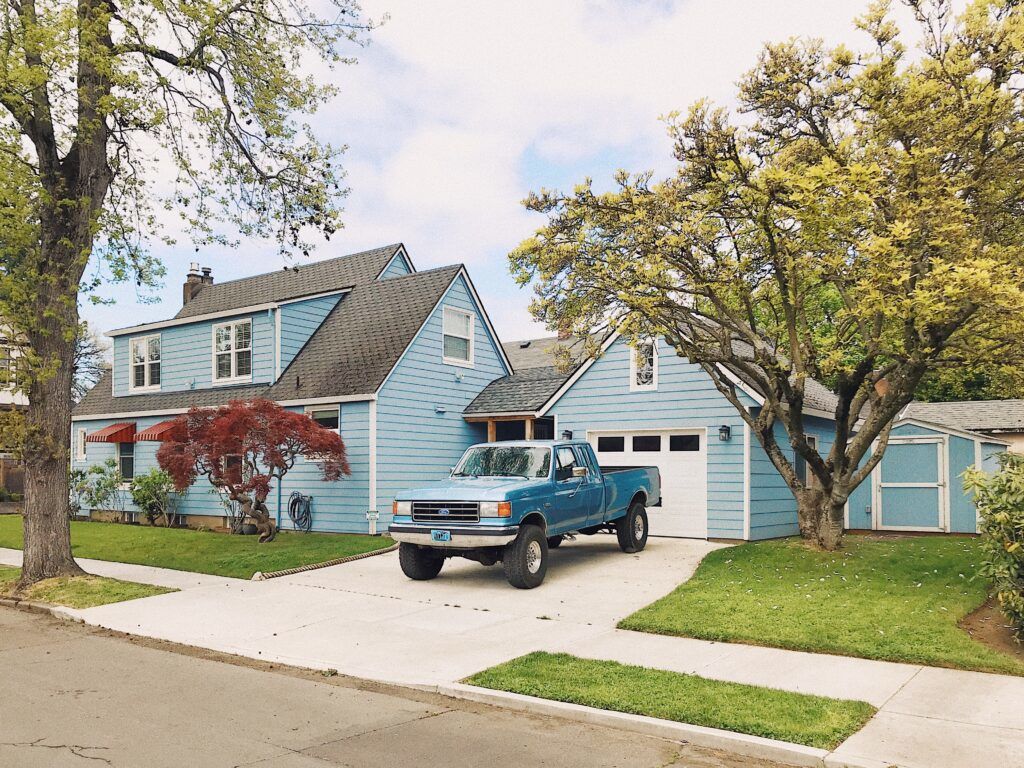Many homeowners wonder if they can pave their own driveway. Technically speaking, you can do anything with the proper materials and instructions. However, paving your driveway is a little more involved than other projects. If you are replacing an already-existing driveway, you will need heavy machinery to break up the whole concrete. If you are adding a brand new driveway, you need to excavate to build a proper foundation.
First Things First: Asphalt or Concrete?
Asphalt and concrete each have their share of pros and cons, so make a list of your needs as a homeowner. For instance, asphalt is cheaper to install and easier to repair, but its lifespan is shorter than concrete. Concrete is durable and long-lasting, but if it breaks, it’s more expensive to repair.
Consider factors such as the following.
- The weather where you live
- The color you want your driveway to be (concrete offers more options)
- How often your car leaks on the driveway
- Whether or not you’re comfortable making minor repairs
Paving a Driveway
Now, on to the paving. If you have access to the right equipment and maybe to a few friends for some help, you will need the following items for a standard asphalt or concrete driveway.
- Soil
- Aggregate Filler
- Asphalt or Concrete
- Paver
- Roller
- Loader
- Shapers
After your driveway’s foundation has been established (soil and aggregate), you will need to use your concrete mixer and paver to lay the concrete over the foundation, smooth it out, and let it cure.
Oh, and let’s not forget gravel. If you go with a gravel driveway, the process is a little less involved. Simply dump and spread your gravel, and call it a day. Gravel driveways are not as pretty as paved driveways, but they do the trick in a pinch.
Things to Keep in Mind When Paving Your Driveway
Whether you are paving your driveway yourself or paying a professional contractor to do it, it is important that you understand what to look for in a quality driveway. Remember, it is always better to invest in quality than to replace something over and over again. Keep the following in mind.
1. Build a strong foundation.
Much like your house itself, your driveway cannot be strong without a good foundation. A strong driveway foundation is usually 6-12 inches deep and formed by coarse materials. A coarse foundation allows water to drain underneath the driveway, preventing flooding.
2. Build on a slope.
For proper rain drainage, your driveway must be angled slightly so that water runs toward the street. Otherwise, the water tends to weaken both asphalt and concrete. This results in expensive (and unnecessary!) repairs.
3. Seal the pavement.
Driveway sealant provides a protective barrier between the cement or asphalt and the elements. Sun, ice, and rain can take their toll on a driveway over time. Even spilling oil or cleaner on your driveway can weaken it. Sealing the asphalt or concrete increases your driveway’s lifespan.
4. Give your driveway time to cure.
After your driveway has been poured and paved, give it about a week before parking your car on it again. If you park on it before the material has fully cured, the weight of your vehicle could cause permanent damage.
DIY Driveway Maintenance
Although it can be difficult to install your own driveway if you don’t already have the equipment, you don’t have to call a professional for everything. Avoid the cost of an expensive replacement by increasing the lifespan of your driveway. These tips are simple to do yourself and will help you cut back on maintenance costs.
1. Fill in cracks.
You can buy a driveway crack filler at your local hardware store. Be sure to clean the crack out and remove excess debris before filling the crack. This will help your fix last longer and keep it from breaking down again.
2. Clean your driveway.
Few homeowners realize the importance of regularly cleaning their driveway. Particularly if you park your vehicle on the driveway, check often for oil stains. Car oil can break down the driveway, shortening its lifespan and causing small cracks to form.
3. Protect your curb.
One of the most common driveway issues is a crumbling curb. Your curb may weaken in the areas your car touches. To prevent your curb from crumbling into oblivion, make small repairs as soon as you notice cracks forming, and try to drive slowly and smoothly into your driveway.
4. Avoiding salting your cement.
Excessive use of salt can weaken cement driveways, so use caution in the wintertime. Sealant helps with this problem as well.
5. Repair potholes early.
Again, it is always better to make repairs as soon as you notice them. Potholes can cause long-term damage to driveways if left untreated, so make sure you fill them yourself or call a professional as soon as you see one forming.
6. Reseal as necessary.
Generally speaking, you should reseal your driveway every few years at least.
How Can Next Modular Help?
If you’d like to know more about how you can save money on homebuilding, do not hesitate to call us today. At Next Modular, we know that building a new home is likely one of the most important financial decisions you will make. As an experienced modular home builder, we are committed to being your guiding light through this process.


